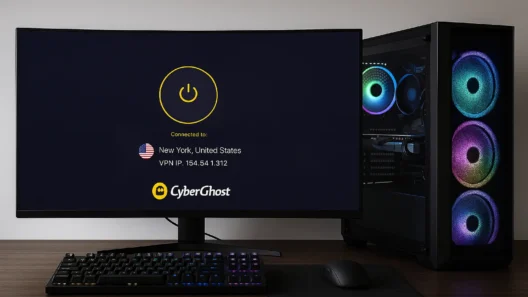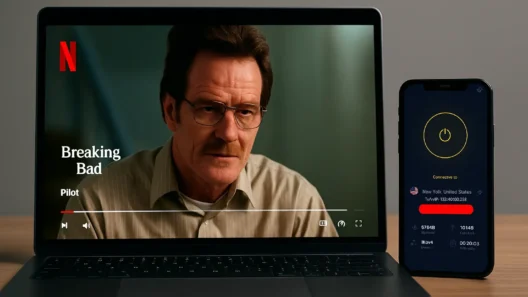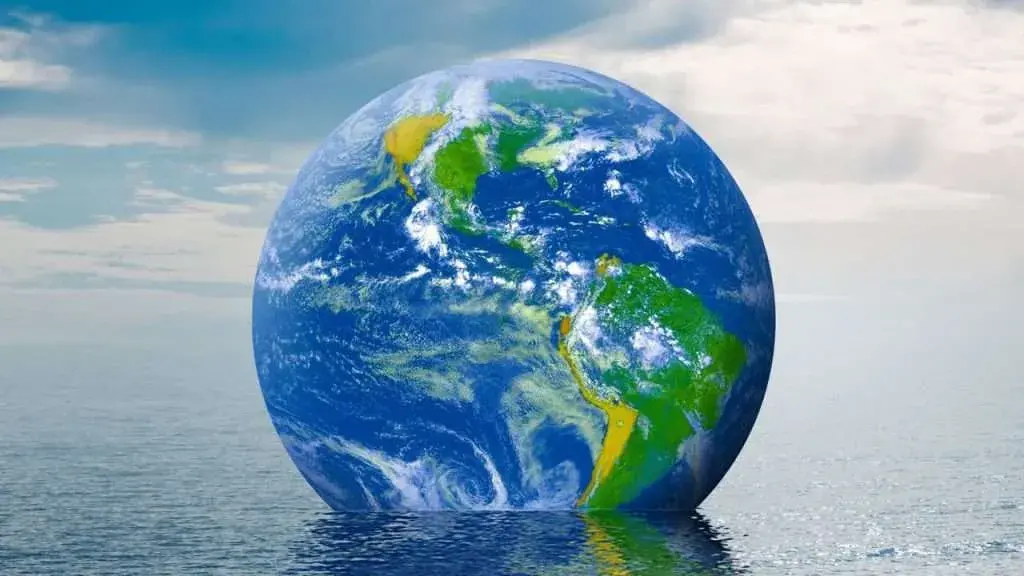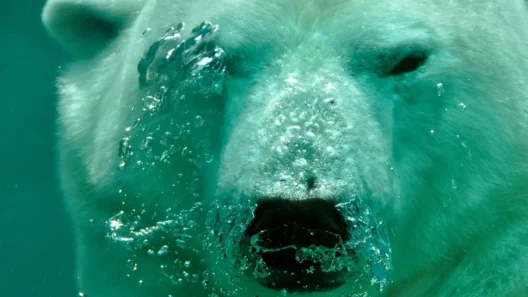Some things happening beneath the ocean’s surface sound like they were ripped from a science fiction movie. Underwater waterfalls? Glowing beaches? Rivers inside the sea? Believe it or not, they’re all real. The ocean isn’t just waves and salty air – it’s a living, breathing alien world right here on Earth, hiding secrets so strange you’d think someone made them up.
Here are 10 jaw-dropping, completely real phenomena that prove the sea is far more mysterious (and magical) than we give it credit for.
🌐 Travel Tip: If you’re planning to see these places in real life, consider using a VPN. It’s perfect for booking flights at better prices, unlocking local streaming while abroad, and staying safe on public Wi-Fi – especially in airports and hotels.
1. Underwater Waterfalls: A Gravity-Defying Illusion
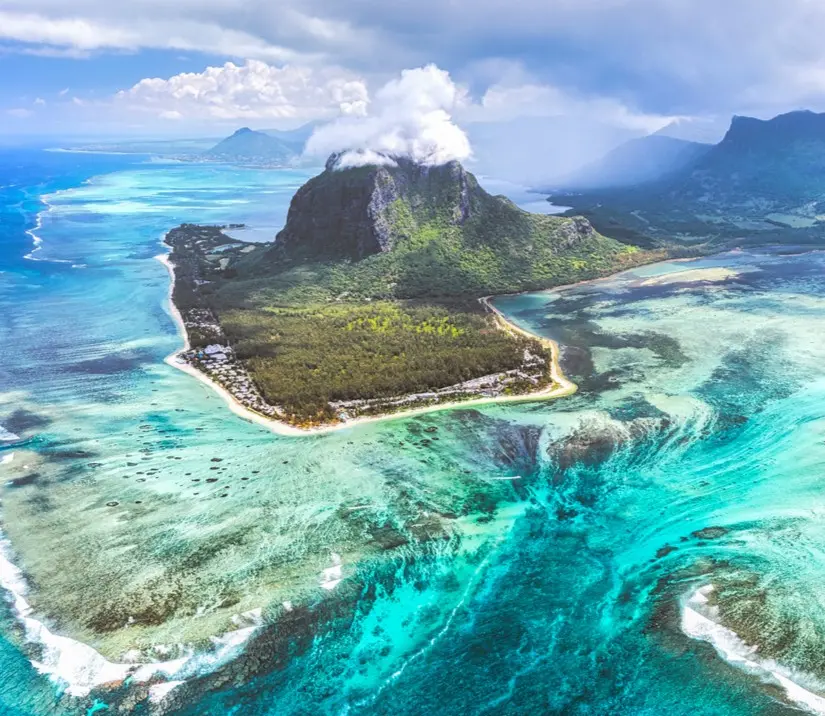
At first glance, the phrase “underwater waterfall” sounds impossible. But off the coast of Mauritius, there’s a breathtaking illusion caused by sediment dropping over the edge of an ocean shelf. From above – say, from a drone or plane – it genuinely looks like the sea is cascading into a deep, bottomless pit. It’s not an actual waterfall, but your eyes will swear otherwise.
🌊 How it works: Sediment falling from a sudden drop in the ocean floor creates an optical illusion of a cascading waterfall. Seen best from above.
2. Submerged Rivers That Flow Beneath the Sea
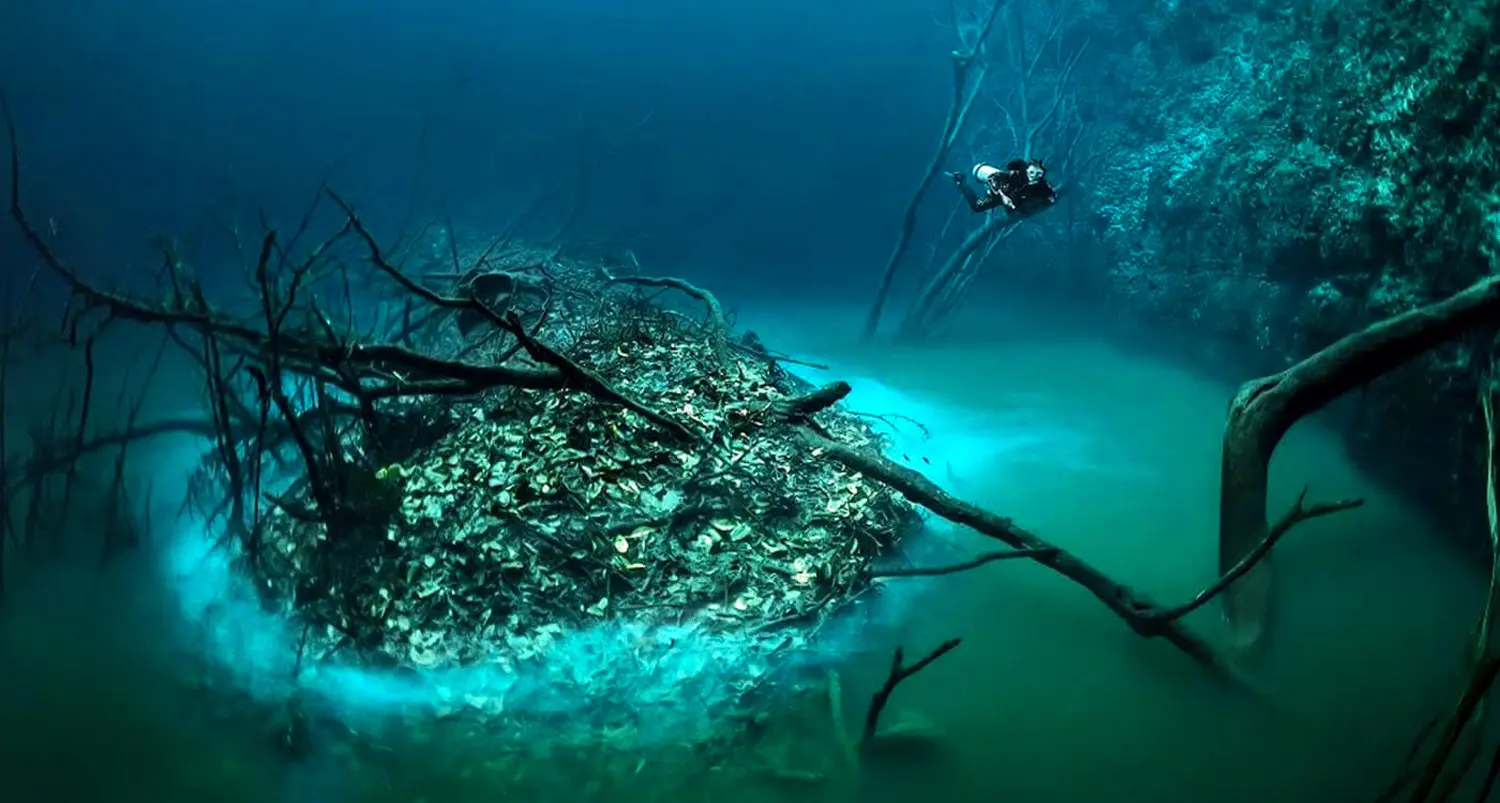
Yes, rivers can exist in the ocean. One of the most famous examples is Cenote Angelita in Mexico, where a layer of hydrogen sulfide separates freshwater and saltwater. The result? A ghostly river with banks and a current – all happening 30 meters underwater. The visual is haunting, like you’re diving into a dream.
🌊 How it works: Denser saltwater and lighter freshwater layer separately, forming river-like currents within the sea.
3. The Ocean Has a Soundtrack
Marine life doesn’t just look wild – it sounds wild too. Whales sing in eerie melodies, fish click, shrimp snap, and coral reefs even hum gently. Scientists call it “biological noise,” and it plays an important role in helping marine animals navigate. One of the most famous ocean sounds? The “Bloop,” a mysterious deep-sea sound recorded in 1997. No one has definitively explained it to this day.
🌊 How it works: Sound travels 4x faster underwater. Animals use it to communicate and navigate; some deep-sea sounds remain unexplained.
4. Glowing Beaches That Sparkle Like Magic
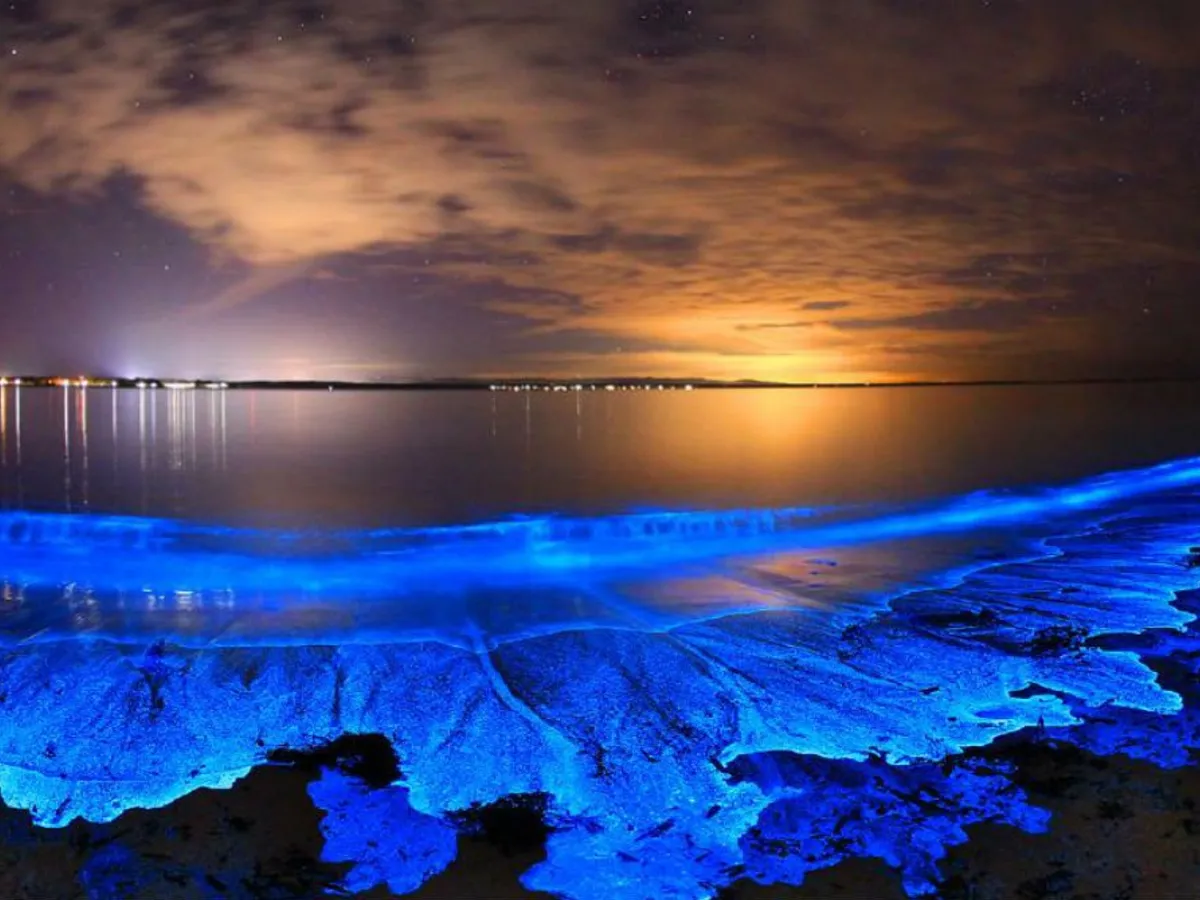
Ever dreamed of walking on a beach that glows beneath your feet? Bioluminescent beaches make that fantasy real. Caused by microscopic plankton that emit light when disturbed, these shorelines can be found in places like the Maldives, Puerto Rico, and Vietnam. At night, every wave, splash, or step lights up with a surreal, electric blue shimmer.
🌊 How it works: Microscopic organisms emit light through chemical reactions when disturbed. They glow most at night in motion.
5. Whirlpool Portals to the Deep
Some ocean currents are so strong they form enormous whirlpools – real, spinning vortexes that look like something out of a sci-fi film. Saltstraumen in Norway is the world’s most powerful tidal current, with water speeds reaching 40 km/h and whirlpools over 10 meters wide. From above, it looks like the sea is being unplugged.
🌊 How it works: Powerful tides between narrow inlets create spinning currents. In some cases, they can become dangerous for boats.
6. Blue Holes: The Ocean’s Mysterious Caverns
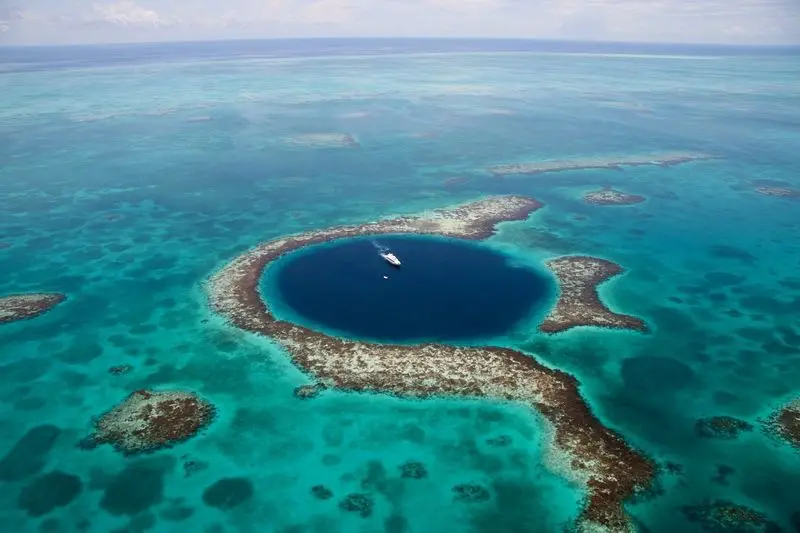
Blue holes are giant sinkholes in the ocean floor, often surrounded by vibrant turquoise shallows. One of the most famous, the Great Blue Hole in Belize, is over 300 meters wide and 120 meters deep. Diving into one feels like entering an aquatic black hole, where the light fades and silence takes over.
🌊 How it works: Sinkholes in limestone seabeds, formed over millennia, plunge into the deep and create strange environments.
7. Underwater Clouds: Yes, They Exist
Beneath the surface, it’s not always crystal clear. In places like the Bahamas, divers encounter strange, dark “clouds” in the water – layers of sulfur, sediment, or organic material suspended due to differences in temperature and density. They float beneath you like smoke in a dream.
🌊 How it works: Layers of materials (like sulfur or plankton) collect where water temperatures or salinity levels shift dramatically.
8. Alien-Like Deep Sea Creatures
The deeper you go, the weirder it gets. From the blobfish (which looks like a cartoon out of water) to anglerfish with glowing lures, deep-sea animals have evolved bizarre ways to survive total darkness, extreme pressure, and freezing temperatures. One species, the Riftia pachyptila worm, lives without a mouth or stomach – it survives purely on symbiotic bacteria.
🌊 How it works: Adaptations to high pressure, no light, and freezing temperatures lead to extreme appearances and bizarre survival strategies.
9. Underwater Anomalies and Lost Civilizations?
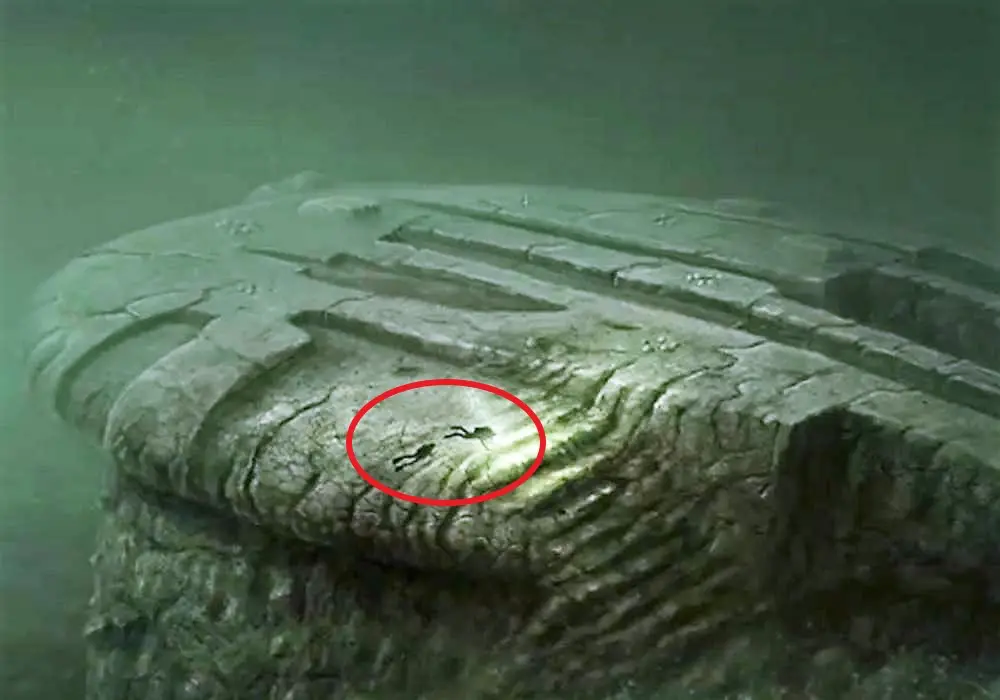
In places like Japan’s Yonaguni Monument, underwater structures resembling ancient stairs and walls have sparked debates about lost civilizations. While some scientists say it’s natural erosion, others suggest human origins. Add in magnetic anomalies and ship disappearances (hello, Bermuda Triangle), and the ocean’s mystery only deepens.
🌊 How it works: Natural formations or possible ancient ruins lie beneath the sea. Their origins remain hotly debated.
10. Seas That Change Color Like Mood Rings
Some bodies of water literally change color, from crystal blue to red or green. Red tides (algal blooms) give the sea a blood-red hue, while the Red Sea can appear reddish due to certain algae. It’s not a trick of the light – it’s chemistry, biology, and seasonal shifts playing with your perception.
🌊 How it works: Phytoplankton blooms or chemical reactions cause dramatic shifts in water color.
Bonus: Where to See These Phenomena in Real Life
- Underwater Waterfall: Le Morne, Mauritius (best seen from helicopter or drone)
- Submerged River: Cenote Angelita, Mexico (for certified divers)
- Bioluminescent Beaches: Vaadhoo Island (Maldives), Mosquito Bay (Puerto Rico), Halong Bay (Vietnam)
- Whirlpools: Saltstraumen, Norway
- Blue Hole: Great Blue Hole, Belize
- Underwater Structures: Yonaguni Monument, Japan
Final Thoughts: The Ocean Is the Planet’s Last Great Mystery
When we think of sci-fi, we usually picture outer space – but maybe we should be looking down instead of up. The ocean is vast, mostly unexplored, and teeming with things we still don’t fully understand. From glowing waves to haunting underwater “rivers,” these real-life phenomena remind us that nature is full of wonder.
Next time you’re at the beach, remember: there’s a whole other world just beneath your toes – and it’s stranger (and more beautiful) than fiction.
🌐 Travel Smart: Whether you’re exploring glowing beaches or booking a hotel near the Great Blue Hole, a reliable VPN can help you:
- Access streaming platforms from back home while traveling
- Book flights and accommodations at better prices
- Stay protected on public Wi-Fi at airports, cafés, and hotels
Stay curious – and stay secure.
| My 5 Best VPN for Travel | Offer + Discount | URL |
|---|---|---|
| NordVPN | 77% off + 3 months free | Try NordVPN |
| ExpressVPN | 61% off + 6 months free | Try ExpressVPN |
| SurfShark | 87% off + 2 months free | Try SurfShark |
| CyberGhost | 83% off + 2 months free | Try CyberGhost |
| PIA VPN | 82% off + 2 months free | Try PIA VPN |

